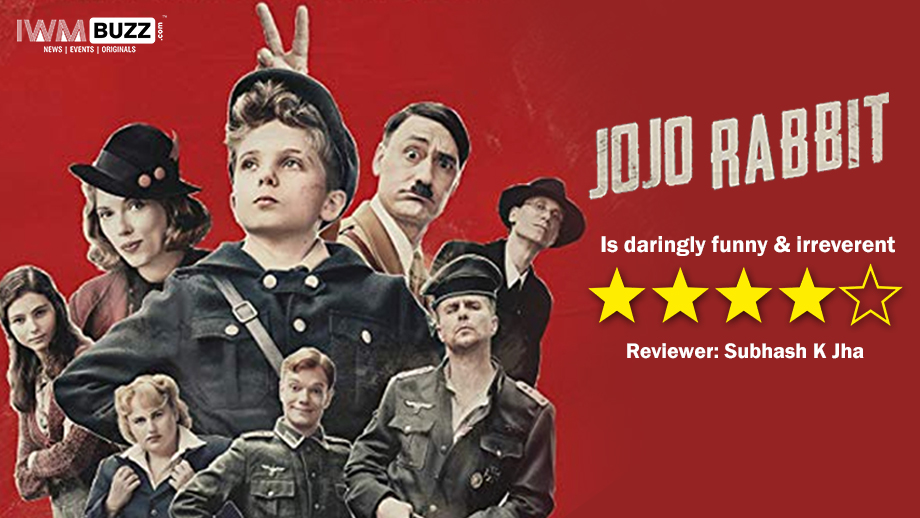Jojo Rabbit
Starring Roman Griffin Davis, Scarlett Johansson, Taika Waititi, Thomasin Mackenzie
Directed by Taika Waititi
Rating: **** (4 stars)
Now, where did this come from?! New Zealander Taika Waititi is best known in these parts for directing the super-hero muddle Thor Ragnarok in 2017. Suddenly out of the blue Waititi has made a precious precocious film that pays a subconscious perhaps unintentional homage to all those legendary directors from Satyajit Ray (Pather Panchali) to Roberto Benigni (Life Is Beautiful) who have looked on an adult world from a child’s perspective.
Welcome to 10-year old Jojo’s world. This is Germany during Hitler. And it’s not anywhere as bleak as Schindler’s List nor as brutal as Inglorious Basterds. That deliberate misspelling, though, could come from little Jojo, though he’s way too bright to be brought to book on such trivia. As played by the amazing little discovery Roman Griffin Davis, Jojo is that sound of sanity that we long to hear in the innocence of childhood when the world has gone out of control.
Taika Waititi tries to make sense of the Hitlerian madness by positioning the little Nazi Jojo at the centre of an anarchic universe where on one end he is confronted by the grim reality that the Jews are not the freaks he is being tutored to believe, on the other end he has imaginary conversations with Hitler, played with maddening goofiness by the director Taika Waititi.
Waititi’s Hitler is a droll doppelganger of Adolf, a caricature that de-demonizes the Nazi butcher. It is a portrait of a savage in tender colours. At the same time there is this tender relationship that grows in the course of the leisurely narrative between little Jojo and Elsa, a beautiful 18-year old Jew whom Jojo’s mother has hidden in the house.
The ironies of war-time are splendidly harnessed into a satire that is at once sad and acutely funny. The highlights of the shimmering show are many. Jojo’s conversations with Hitler are written like spurts of genius scribbled on paper napkins during a xenophobic charity ball. Then there is Jojo’s kinship with the Jewish girl whom he suspects he has fallen in love with even though she is 8 years his senior.
Most of all, the film wins your heart with Jojo’s relationship with his fey generous compassionate mother, played with such casual incandescence by Scarlett Johansson. The Romanian cinematographer Mihai Mălaimare Jr preserves the ‘poetry’ of the violent times in images that are neither luminous nor stark, but a blend of both.
I also loved Jojo’s buddy-buddy bonding with his best friend Yorki. But where the film failed me completely was in trying to simulate satire in the violence of the Nazi junior-soldiers’ camp where Jojo must learn to kill without a thought. These scenes seem to try too hard to preserve the ongoing spirit of unpredictable valour in the face of abject prejudice.
In the end, we see Jojo and his Jewish friend dancing together on the street in celebration of uncertain freedom. We are left with a film that is chilling in its subtexts of how the impressionable generations are used during crises by a political agenda. These underlayers are never allowed to bubble to the surface. Except in one heartbreaking image of genocide the street Jojo Rabbit remains chillingly playful in tone, provoking and daring us to disbelieve in the power of innocence and love to heal and repair and restore faith when the world around us has gone crazily anarchical.

